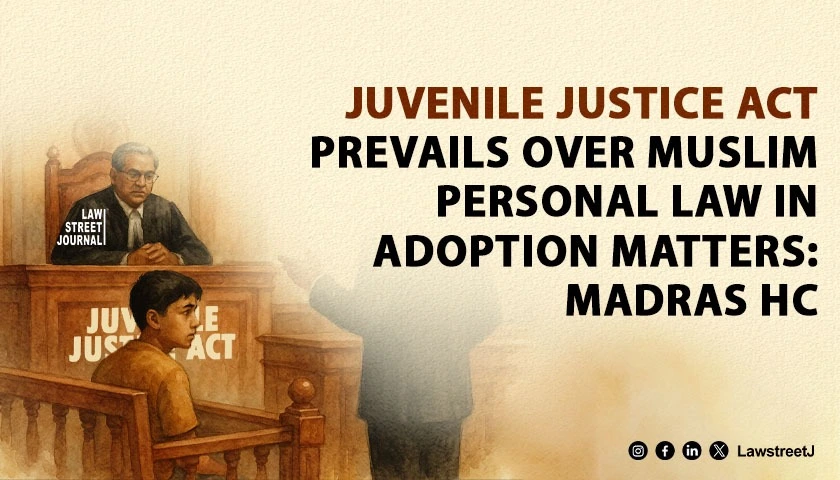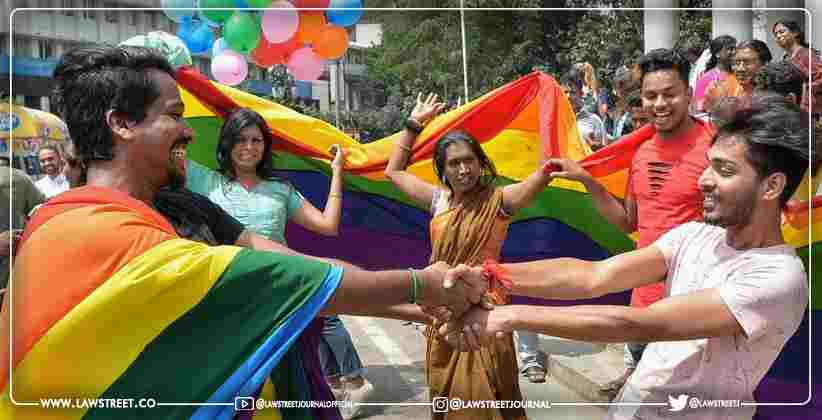Chennai: The Madras High Court has delivered a significant judgment affirming that Muslim couples can adopt children under the Juvenile Justice Act, 2015, despite Islam not recognizing adoption, emphasizing that adopted children must have equal status with biological children.
The court of Justice G.R. Swaminathan made this observation while addressing a writ petition filed by K. Heerajohn seeking directions to register an adoption deed for his nephew Mohammed Saleem, an eight-year-old child. The writ petitioner and his wife, Kadhan Beevi, being childless, sought to adopt the son of the petitioner’s deceased brother with the consent of the child’s biological mother.
Addressing the fundamental issue of religious law versus statutory provisions, the court observed, “It is true that Islam, which the parties profess, does not recognise adoption. But the Juvenile Justice (Care and Protection of Children) Act, 2000 and its subsequent 2015 avatar enable adoption by willing parents de hors their religious background.”
The court further emphasized the constitutional basis for child welfare legislation, stating, “A combined reading of Sections 1(4) and 63 of the JJ Act, 2015 in light of Article 15(3) of the Constitution of India leads me to conclude that it will prevail over Muslim Personal Law, and an adopted child will have the same status as a biological child in all matters and cannot be given a second-class status.”
While highlighting the distinction between Hindu adoption law and the JJ Act framework, the court noted, “Section 56(3) of the JJ Act, 2015 makes it clear that its provisions shall not apply to adoptions made under the Hindu Adoption and Maintenance Act, 1956.”
In a critical observation on proper adoption procedures, the court stated, “The parties are Muslims. They must necessarily follow the procedure laid down in the JJ Act, 2015, and the Rules and Regulations framed thereunder. They cannot seek the easy option of executing and registering an adoption deed. The law does not recognise the same.”
The court clarified the mandatory procedure under the Adoption Regulations, 2022, explaining that “parties have to approach the District Child Protection Unit and the District Magistrate in the sequence set out in the 2022 Regulations,” and that “once an order of adoption is issued by the District Magistrate, it is unnecessary to get it registered.”
Regarding child consent, the court stated, “A child below 18 years cannot obviously give consent. Therefore, the expression ‘consent’ must be understood as ascertaining the child’s wishes. The authorities are not bound to reject an application for adoption merely because the child aged five years or above did not give consent.”
Recognizing adoption as a human right, the court observed, “The right to adopt may not yet have been recognised as a fundamental right within the scope of Article 21 of the Constitution, but it is certainly a human right. International conventions have specifically recognised the right to found a family as a human right.”
Addressing systemic delays, the court took judicial notice of editorial concerns, stating, “Some reports indicate that as many as 13 prospective parents are waiting for every single child declared legally free for adoption. This imbalance, along with procedural delays, means that many children spend their crucial early years in institutional care rather than in stable, loving homes.”
The court emphasized the developmental impact of such delays, noting, “Any delay in the adoption process postpones and deprives children of formative experiences and opportunities that can significantly alter the trajectory of their lives.”
In its final directive, while declining to issue a mandamus for registration, the court stated, “The parties are permitted to adopt the procedure laid down in the Adoption Regulations, 2022. The Child Protection Unit shall complete the verification process within three weeks after the application is uploaded to the portal.”
The court further directed that “once the matter goes before the District Magistrate, the application shall be disposed of within three weeks thereafter.”
Mr. M. Pandian appeared as counsel for the petitioner, while Mr. G.V. Vairam Santhosh, Additional Government Pleader, appeared for the respondents.
Case Title: K. Heerajohn vs. The District Registrar, Madurai District & Another




![TN Medical Council declares change of gender identity of LGBTQIA+ as misconduct [Read Notification]](/secure/uploads/2022/12/lj_5268_5cebb05a-97fb-40fb-8045-25cdf8f4207a.jpg)
![Madras High Court Directs Tamil Nadu Government to Ensure Quota for Transgenders in Local Body Elections [Read Order]](/secure/uploads/2023/08/lj_2507_7a03d113-08b1-4670-b6fb-9058aee481d0.jpg)
![Anti Corruption sleuths acted like "puppets in The Muppet Show", HC notice to ex TN CM in disproportionate assets case [Read Order]](/secure/uploads/2023/09/lj_8675_7b37fc02-1b2d-4f4a-9816-3df20545b37e.jpg)




